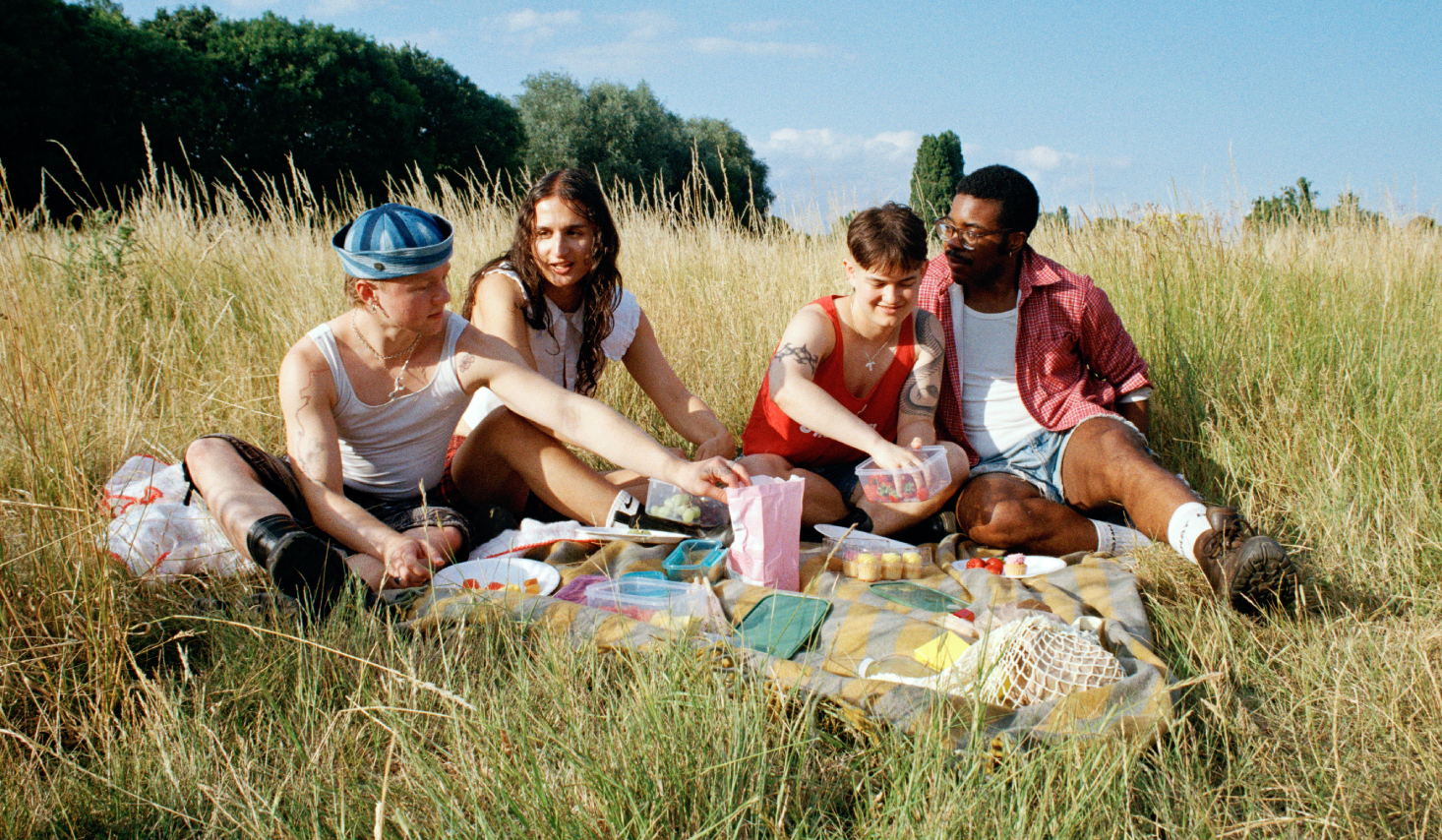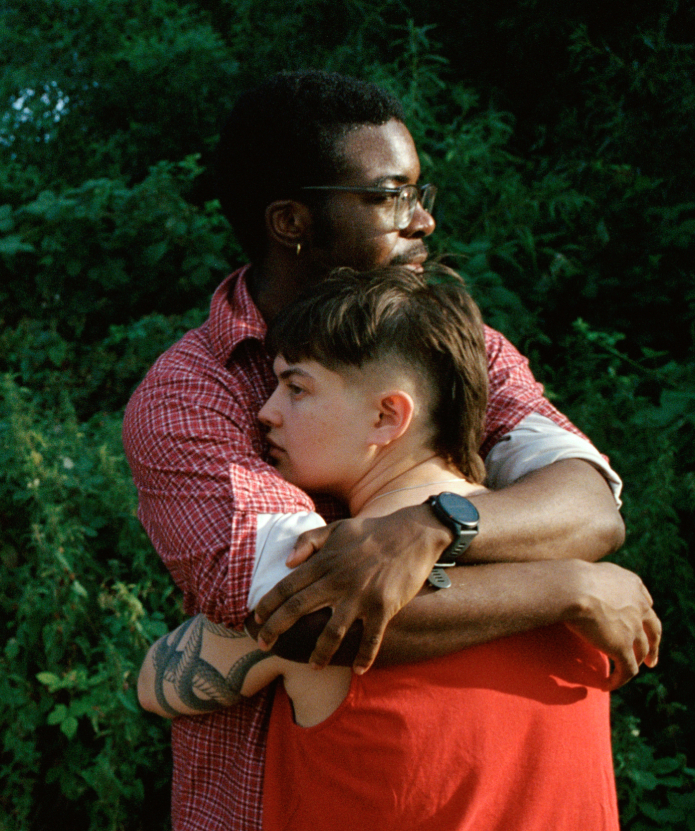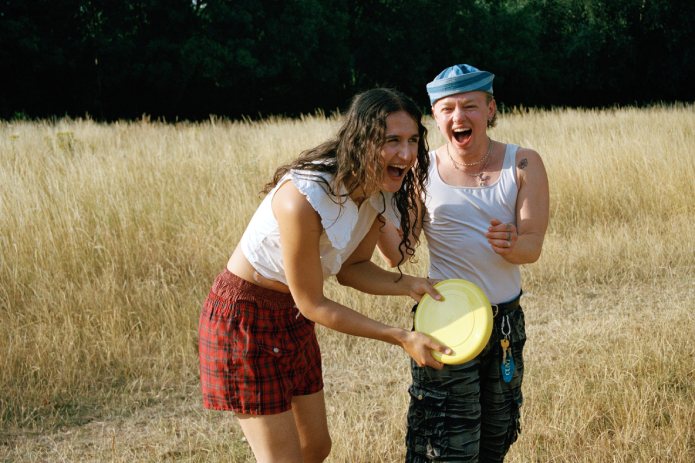
In 2025, discourse around labels is raising big questions about how we connect and what it means to love one another. While some hold labels dear, embracing the belonging and definition they provide, others are letting their connections be defined by attraction over identity.
According to Hinge, 48% of queer daters feel frustrated by the constraints of gender and sexuality categories, a phenomenon known as Label Fatigue. In response, GAY TIMES sat down with two queer couples to explore how loving beyond labels allows them to feel both held and free within their relationships.
Leo (he/him) and Nkem (he/him)

After falling into a relationship founded on mutual friends and shared interests, Leo and Nkem have been dating for three years. Their connection allowed Nkem to better understand his identity as a gay man.
“Leo is the first guy I’ve ever dated and before him, I couldn’t imagine having romantic feelings for a man,” shares Nkem. “Exploring my sexuality through our relationship has felt very easy and organic, like something just clicked in my head.”
Leo adds: “I’ve found that people I share chemistry with often resonate with the same labels I do but labels should never tie you down.”
Hinge’s Love Beyond Labels report reveals that LGBTQIA+ daters are increasingly adopting Label Fluidity – an attitude to dating which focuses on evolution and curiosity, prioritising connection and chemistry over labels.
Like 37% of LGBTQIA+ daters who have updated the sexuality labels they previously identified with, both Leo and Nkem have used different labels throughout their journeys and both faced judgement from others when expressing the shift in how they identify, an experience shared by 60% of LGBTQIA+ daters.
Being together and allowing chemistry to be the deciding factor in their connection, the pair have been able to better understand both themselves and one another.
“Together, we both have a deep respect for each other’s autonomy. I feel very lucky to be with someone who has a deep understanding of the labels I use for myself, seeing how much we have in common led us both to use the same labels and our shared experiences have helped me feel more secure in my identity,” Leo says.
“For any younger daters navigating dating and label fluidity, I would say don’t be too bogged down. If a label appeals to you, allow yourself to imagine a life where you could try it out.” Leo adds.
Macy (she/her) and Naissa (he/him)

Like Leo and Nkem, dating beyond their usual types allowed Macy and Naissa to feel free within their connections.
“Macy’s playful gender exploration throughout our relationship has reminded me to stay curious about my own identity and not be so afraid of change,” Naissa says. “Our relationship has affirmed my own gender identity and I have definitely experienced a shift in my sexuality by not limiting possible attractions and connections.”
While 50% of LGBTQIA+ daters report feeling pressured to perform gender in a particular way to attract a partner, together Macy and Naissa champion fluidity.
“I’ve gone from genderfluid to a trans femme to a trans woman to a trans dyke, all in the space of our three-year relationship, and never felt a lessening of our connection. I think openness is so attractive and has played a big part in the longevity of our relationship,” says Macy.
According to Hinge, 45% of LGBTQIA+ daters are curious about new kinds of connection and yet 55% of daters haven’t acted on these feelings. Naissa shares the positive impact he’s felt after placing less importance on labels.
“I’m at the point in my queerness and relationship where labels mean so much less than they once did. The priority is our connection and how we show up for each other,” he explains. “I think it’s so easy to make assumptions but I’d rather give the benefit of the doubt, and try to see someone for how they are with me.”
Both Macy and Naissa cherish the independence and connection they foster, sharing how their open and honest communication style has allowed them to grow together and flourish amidst their shifting identities.
“Our relationship has taught me to welcome uncertainty without the fear of losing something, and to find joy in stepping into the unknown,” Macy reflects. “I love being able to fall in love with someone again and again, through every version of who they become.”
Naissa agrees: “What’s life without newness and change?”
You can read Hinge’s LGBTQIA+ date report here.